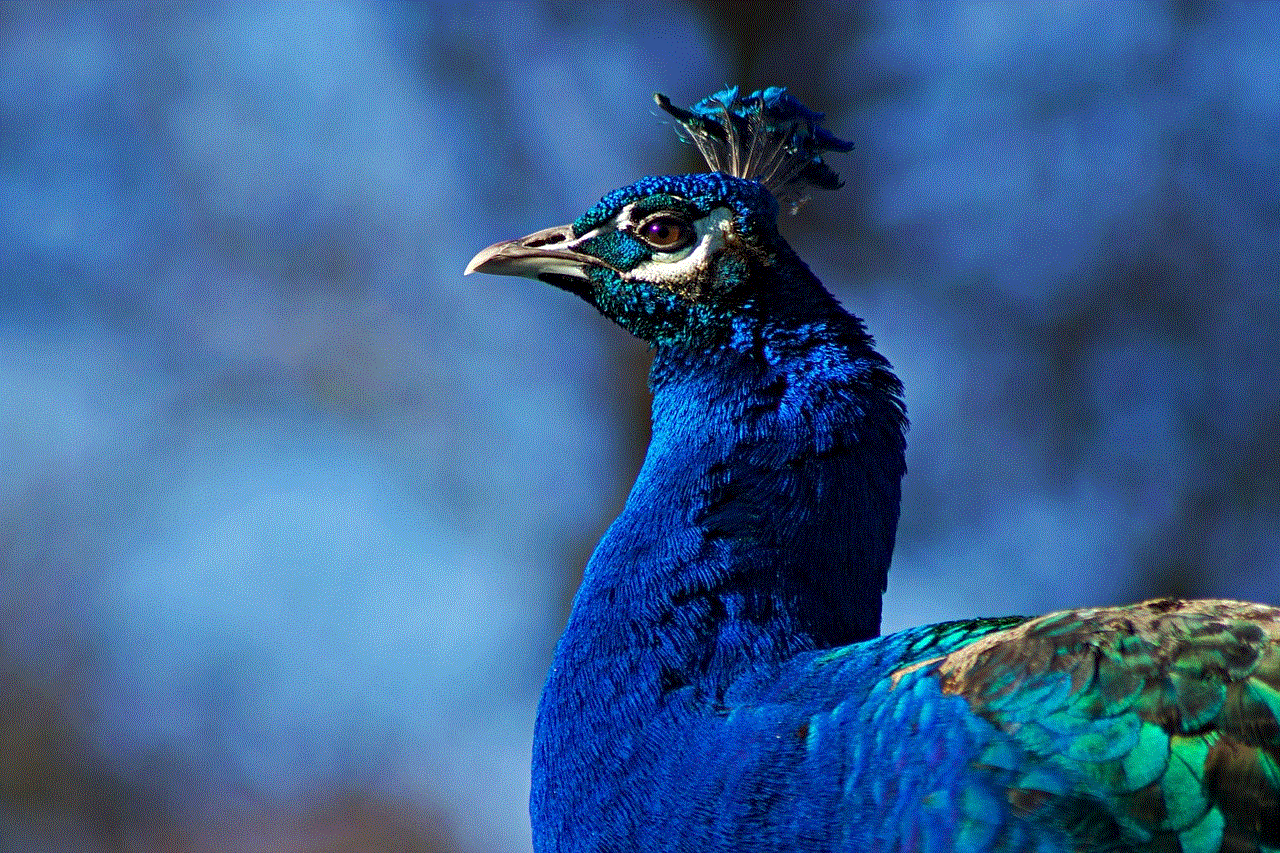who was it roblox
Roblox is a popular online gaming platform that has taken the world by storm. It was created by David Baszucki and Erik Cassel in 2004, and officially launched in 2006. Since then, it has become a sensation among gamers of all ages, with a user base of over 164 million active players.
But what makes Roblox so special? What sets it apart from other online games? Well, the answer lies in its unique concept of user-generated content. Unlike traditional games, where the content is created by developers, Roblox allows its users to create their own games and experiences within the platform. This has led to a vast and diverse library of games, ranging from action and adventure to role-playing and simulation.
One of the most intriguing aspects of Roblox is its community-driven nature. The players are not just consumers of the content, but they are also creators. This has fostered a sense of creativity and collaboration among the users, making it more than just a gaming platform but a social platform as well. Players can interact with each other, join groups, and even create their own virtual worlds.
So, who was it that came up with this brilliant idea? The mastermind behind Roblox is David Baszucki. He was born in Canada in 1963 and developed an interest in computer s and programming at a young age. After graduating from Stanford University with a degree in computer engineering, Baszucki went on to work at various tech companies, including Apple and Knowledge Revolution.
It was during his time at Knowledge Revolution that Baszucki and his colleague, Erik Cassel, came up with the idea of Roblox. Their initial vision was to create a physics-based educational tool that would allow students to learn and experiment with physics concepts in a fun and interactive way. However, they soon realized that the potential of their creation went beyond just education.
In 2004, Baszucki and Cassel left Knowledge Revolution and formed a company called Roblox Corporation. They started working on their platform, which was initially called “Dynablocks”. It was a simple block-building game that allowed players to create and share their own 3D games. The name was later changed to “Roblox” in 2005, which is a combination of the words “robots” and “blocks”.
In 2006, Roblox was officially launched, and it quickly gained popularity among young gamers. The platform’s success can be attributed to its easy-to-use interface and the freedom it offers its users to create and play their own games. It also helped that the platform was free to use, with the option to purchase in-game currency, called “Robux”, to customize avatars and buy virtual items.
As Roblox continued to grow, Baszucki and Cassel faced many challenges. One of the biggest hurdles they had to overcome was the lack of funding. Despite its popularity, Roblox did not receive much attention from investors. In fact, the founders had to invest their own money to keep the platform running in its early days.
But their dedication and hard work paid off, as Roblox continued to gain traction. In 2012, the platform reached 5 million monthly active players, and by 2017, it had over 64 million monthly active players. The number of games on the platform also grew exponentially, with over 40 million games created by users.
However, tragedy struck in 2013 when Erik Cassel passed away after battling cancer. His death was a huge loss for the Roblox community, as he was not only a co-founder but also a beloved member of the community. In honor of his memory, Roblox introduced an in-game item called “Erik’s Code” that players could purchase, with all proceeds going to cancer research.
Despite this setback, David Baszucki continued to lead Roblox and guide it to even greater success. In 2018, the platform reached a milestone of 100 million monthly active players, and in 2020, it went public with a valuation of over $41 billion.
Roblox has also expanded its reach beyond just gaming. It has been used as a tool for education, with teachers using it to create interactive lessons and activities for their students. It has also been used for social events, such as virtual concerts and graduation ceremonies, especially during the COVID-19 pandemic.
However, with its growing popularity, Roblox has also faced its fair share of controversies. In recent years, there have been concerns about the safety of young users on the platform, with reports of inappropriate content and online predators. Roblox has taken steps to address these issues, such as implementing stricter moderation and parental controls.
In conclusion, Roblox is not just a game, but a phenomenon that has revolutionized the gaming industry. It has broken barriers and given its users the power to create and share their own virtual worlds. And behind this successful platform is David Baszucki, the visionary who turned a simple idea into a global sensation. He has not only created a game but a community that continues to grow and thrive.
how to stop facebook from tracking me
In today’s digital age, privacy has become a major concern for many internet users. With the rise of social media, companies like Facebook have access to vast amounts of personal data, raising questions about how this information is collected and used. One of the most common concerns is how Facebook tracks its users and their online activities. If you’re someone who values your privacy and wants to prevent Facebook from tracking you, you’ve come to the right place. In this article, we’ll discuss the various ways to stop Facebook from tracking you and protect your online privacy.
Before we dive into the ways to stop Facebook from tracking you, it’s important to understand how Facebook tracks its users. As a social media platform, Facebook collects data from its users in various ways. Some of the common methods include tracking your location, monitoring your online activities, and using cookies to track your browsing history. Facebook also uses information from other websites and apps that you have interacted with, through the use of social media plugins and tracking pixels. This data is then used to create targeted advertisements and personalized content for its users.
Now that we know how Facebook tracks its users, let’s look at the steps you can take to prevent it from tracking you. The first and most effective method is to adjust your Facebook privacy settings. By default, Facebook’s privacy settings are set to share your data with everyone. However, you can change this by going to the “Settings” menu on your Facebook account. From there, click on “Privacy” and adjust the settings to limit the audience for your posts, profile information, and other data.
Another way to stop Facebook from tracking you is by disabling location tracking. Facebook has a feature called “Location Services” that tracks your location using your mobile device’s GPS. This feature is used to show nearby events, check-ins, and other location-based content. To disable this feature, you can go to your device’s settings and turn off location services for the Facebook app. You can also manually remove any location data from your posts or disable location sharing for specific posts.
Furthermore, you can limit the use of cookies by Facebook by adjusting your browser settings. Cookies are small text files that websites use to store information about your browsing habits. Facebook uses cookies to track your online activities and show you targeted advertisements. By going to your browser settings, you can clear your cookies or disable them altogether. However, keep in mind that disabling cookies may affect your browsing experience on other websites as well.



In addition to adjusting your privacy settings, you can also take advantage of Facebook’s “Off-Facebook Activity” feature. This feature allows you to view and manage the data that Facebook receives from third-party websites and apps. You can choose to clear this data or turn off future activity tracking altogether. By doing so, you can prevent Facebook from using your data from other websites and apps to target you with personalized ads.
Another way to stop Facebook from tracking you is by using a virtual private network (VPN). A VPN allows you to browse the internet anonymously by masking your IP address and encrypting your data. By using a VPN, you can prevent Facebook from tracking your online activities and location. However, keep in mind that not all VPNs are created equal, and you should do thorough research before choosing one to ensure your privacy is protected.
You can also limit the amount of information that Facebook has about you by being mindful of what you share on the platform. Avoid posting personal information such as your address, phone number, or date of birth on your Facebook profile. This information can be used by hackers or other malicious actors to track you. Additionally, be cautious about the apps and quizzes you use on Facebook. These apps often request access to your personal information, which can be used to track you.
Furthermore, you can prevent Facebook from tracking you by using a different browser or using incognito mode. Browsers such as Firefox and Safari have built-in privacy features that can prevent websites, including Facebook, from tracking your online activities. Incognito mode, on the other hand, allows you to browse the internet without saving your browsing history, cookies, or other data.
Another important step to stop Facebook from tracking you is to regularly review and delete your Facebook activity. This includes your search history, location history, and ad preferences. By reviewing and deleting this data, you can limit the amount of information that Facebook has about you, making it difficult for them to track your online activities.
Lastly, if you want to completely prevent Facebook from tracking you, you can delete your account. This is a drastic step, but it will ensure that Facebook no longer has access to your data. Keep in mind that deleting your account is permanent, and you won’t be able to retrieve your data once it’s deleted. Therefore, it’s important to download a copy of your Facebook data before deleting your account.
In conclusion, there are various ways to stop Facebook from tracking you. By adjusting your privacy settings, disabling location tracking, using a VPN, and being mindful of what you share on the platform, you can limit the amount of information that Facebook has about you. Additionally, regularly reviewing and deleting your Facebook activity can further protect your privacy. Ultimately, it’s important to stay informed about the ways Facebook collects and uses your data and take necessary steps to protect your online privacy.
who looks at my facebook page
Facebook, the world’s largest social media platform, has become an integral part of our daily lives. With over 2.7 billion active users worldwide, it has revolutionized the way we connect and interact with people. From sharing our thoughts, photos, and videos to catching up with old friends and making new ones, Facebook has become a one-stop destination for all our social needs.
However, with the increasing popularity of Facebook, a question that often comes to mind is – Who looks at my Facebook page? This query has sparked curiosity among many users, and there have been numerous discussions and debates surrounding it. In this article, we will delve deep into this topic and try to find an answer to this burning question.
To begin with, let’s understand the dynamics of Facebook. When we sign up for a Facebook account, we create a profile that becomes our virtual identity on the platform. This profile consists of our personal information, such as our name, age, location, education, work, and relationship status. Along with this, we also have the option to upload photos and videos, and share our thoughts and experiences through status updates.



Once our profile is set up, we can connect with other users by sending them friend requests. If they accept our request, they become our Facebook friends, and we can view their profiles and posts, and they can view ours. This is how our network on Facebook expands, and we become a part of a vast community of people from different parts of the world.
Now, coming back to the main question – Who looks at my Facebook page? The answer to this is not as simple as it may seem. Facebook has various privacy settings that allow users to control who can see their profile and posts. These settings can be customized according to one’s preferences, and they play a crucial role in determining who can view our Facebook page.
Firstly, there is the option of setting the visibility of our profile to ‘Public’, which means that anyone on Facebook can view our profile and posts, even if they are not our friends. This setting is generally used by public figures, businesses, and brands who want to reach a wider audience. So, if your profile is set to ‘Public’, anyone can view your Facebook page without even sending you a friend request.
Secondly, there is the ‘Friends’ setting, where only your Facebook friends can view your profile and posts. This is the default setting for most users, and it ensures that only people you know and trust can see your personal information.
Thirdly, there is the ‘Friends of Friends’ setting, where not only your friends but also their friends can view your profile and posts. This setting is ideal for those who want to expand their network and connect with people who have mutual friends.
Apart from these, there are also options to customize the visibility of individual posts. For instance, you can choose to make a particular post visible to only a selected group of friends or hide it from certain people on your list. These privacy settings allow us to control who can see our Facebook page, and it is entirely up to us to decide who we want to share our information with.
Now, the question arises, how can we know who has viewed our Facebook page? Unfortunately, there is no direct way to find that out. Facebook does not provide a feature that shows who has visited our profile or viewed our posts. However, there are some indirect ways to get an idea of who might be looking at our Facebook page.
One of the ways is by looking at the ‘People You May Know’ section on our Facebook page. This section suggests people who we may know based on mutual friends, location, workplace, and other factors. If you see someone on this list who you have not interacted with on Facebook, it could mean that they have been viewing your profile.
Another way is by looking at the ‘Views’ section on our Facebook Stories. Stories are short-lived posts that disappear after 24 hours, and they can be viewed by our Facebook friends. When someone views our story, their name appears in the ‘Views’ section. If you notice a name that you are not familiar with, it could be someone who has been looking at your Facebook page.
Apart from these, there are also various third-party apps and websites that claim to show who has viewed our Facebook page. However, it is essential to be cautious while using such apps as they can be a potential threat to our privacy and security. These apps often require access to our Facebook account, and they may use our data for their own purposes. So, it is best to avoid using them and rely on the above-mentioned methods instead.
Now, you might be wondering why there is no direct way to know who has viewed our Facebook page. The answer to this lies in Facebook’s privacy policy. The platform values the privacy of its users, and it aims to provide a secure and safe environment for them to connect and share. By not providing a feature that shows who has viewed our profile, Facebook ensures that our personal information remains protected and is not misused by anyone.



Moreover, the concept of ‘viewing’ a Facebook page is quite subjective. Just because someone has viewed our profile or posts, it does not necessarily mean that they are interested in us. They could have come across our page while scrolling through their feed or searching for something else. Also, with the increasing use of social media, it has become a norm to view people’s profiles out of curiosity or to stay updated about their lives. So, even if someone has viewed our Facebook page, it does not necessarily mean that they have a specific interest in us.
In conclusion, the question – Who looks at my Facebook page – has no definite answer. While there are some indirect ways to get an idea of who might be viewing our Facebook page, there is no way to know for sure. Facebook’s privacy settings allow us to control who can see our profile and posts, and it is up to us to decide who we want to share our information with. So, instead of worrying about who is looking at our Facebook page, let’s focus on using the platform to connect and interact with people in a meaningful way.
